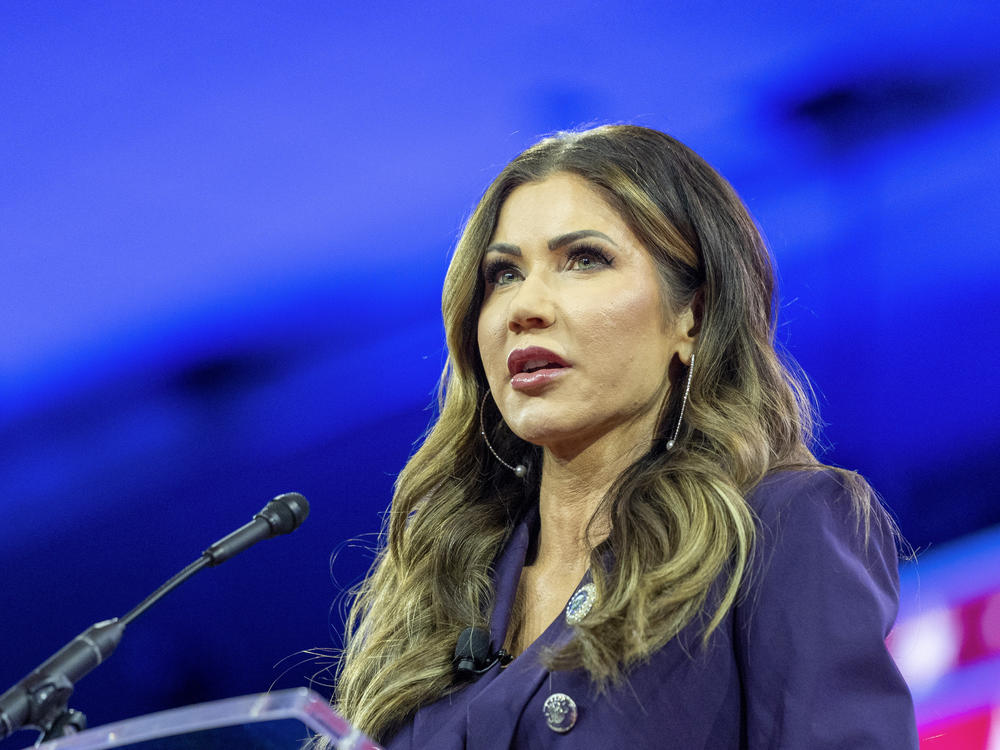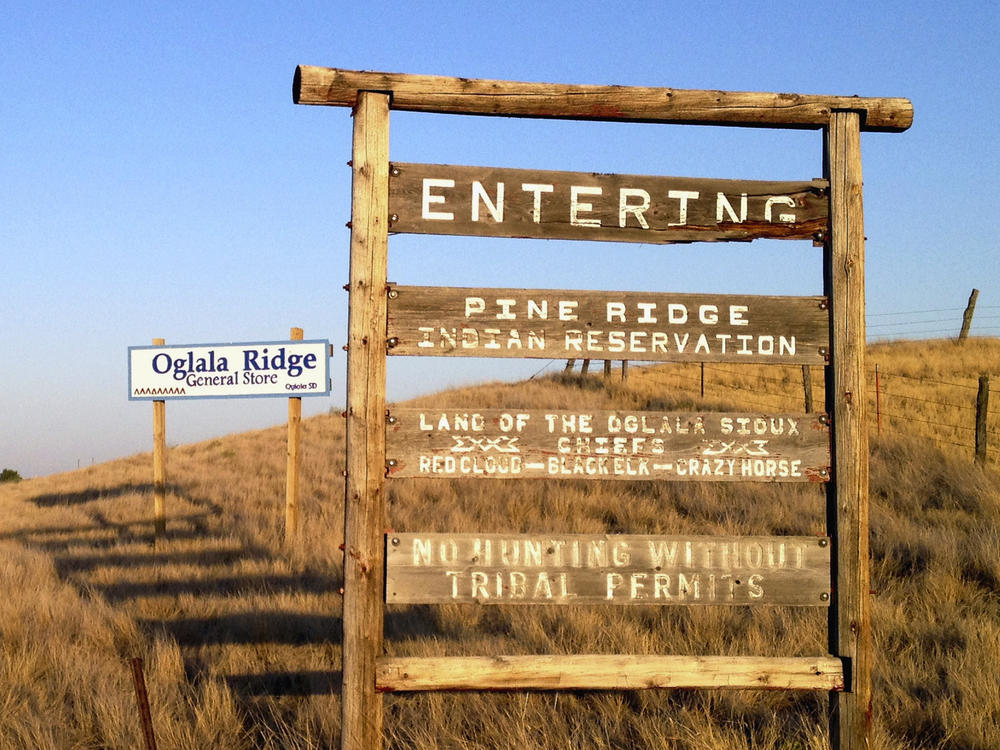Section Branding
Header Content
Most of South Dakota's tribes have banned Kristi Noem from their land. Here's why
Primary Content
RAPID CITY, S.D. — The Crow Creek Sioux Tribe is the latest tribal government to ban South Dakota Republican Gov. Kristi Noem from their reservation in response to allegations she's made that some tribal leaders are benefiting from drug cartel activity.
Noem, an ally to former President Donald Trump, has long focused on concerns she has about crime stemming from the U.S.-Mexico border, even as she governs a state that is hundreds of miles away.
Following Tuesday's decision, she is currently not welcome on seven of nine reservations located within the state.
"We do not have cartels on the reservations," Crow Creek Sioux Tribe Chairman Peter Lengkeek said following Tuesday's vote.
"We have cartel products, like guns and drugs. But they pass over state highways getting to the reservation. So, putting us all together like that and saying that all tribes are involved in this really shows to the ignorance of the governor's office," Lengkeek said, adding that he thinks her office is "not willing to reach out and learn and connect with the tribes."
Noem's approach reflects Trump's messaging
For months, Noem has alleged that drug cartels are active on reservations in South Dakota.
In January, following a speech by Noem during the state's legislative session, Noem made broad statements about crime on reservations located in her state.
"Murders are being committed by cartel members on the Pine Ridge Reservation and in Rapid City, and a gang called the Ghost Dancers are affiliated with these cartels," Noem said in her speech. "They have been successful in recruiting tribal members to join their criminal activity."
"The sheer number of illegal migrants coming into the country has made it so that every state is now a border state," Noem said in that same speech, echoing a phrase used by House Republicans in their attacks against Homeland Security Secretary Alejandro Mayorkas.
Trump, the presumptive GOP presidential nominee, has also said "every state is now a border state" when speaking in political battlegrounds in the Midwest, focusing his attacks on President Biden's immigration policies.
Tribal leaders seek an apology
Noem's criticisms of tribal leaders continued in March at a town hall in Winner, S.D. South Dakota Searchlight reported that Noem said, "We've got some tribal leaders that I believe are personally benefiting from the cartels being here, and that's why they attack me every day."
Charles Abourezk who has served as a judge for Native American tribes in the state says he has not encountered cartel activity in the cases he's covered. Tribal courts hear civil and criminal misdemeanor cases that occur in Indian Country.
"I honestly don't know of any," Abourezk said. "I have never run across any allegations of cartel involvement, although there is normal drug use and sales you see in the rest of South Dakota."
The Oglala Sioux Tribe, Rosebud Sioux Tribe, Standing Rock Sioux Tribe, Cheyenne River Sioux Tribe, Sisseton-Wahpeton Oyate Tribe, Yankton Sioux Tribe and Crow Creek Sioux Tribe have all banned Noem from their reservations.
The Lower Brule Sioux Tribe rejected banning Noem from their reservation in April. Chairman Clyde Estes said the tribe is looking to revisit the ban.
"There's a lot of unfortunate things that are said that are hurtful to our people — especially our children," Estes said.
He said he is hoping Noem will reconsider her comments and has asked her to offer an apology to tribal members.
"When the state and tribe respect each other, both our flags can fly high. The tribes are not cartel havens and our people are not the gangs that threaten your communities," said Ryan Cournoyer, a council member with the Yankton Sioux Tribe. "Our parents want a better future for their children, our leaders seek economic growth and hope."
A spokesperson for the governor's office has not returned requests for comment.
Earlier this month, Noem posted on X: "Tribals leaders should take action to ban the cartels from their lands and accept my offer to help them restore law and order to their communities while protecting their sovereignty. We can only do this through partnerships because the Biden Administration is failing to do their job."
But earlier this year, the governor was on better terms with some leaders when she announced the tribal flags of Standing Rock and Rosebud would be displayed in the state capitol rotunda to signal improving relations between the state and some tribes.
Rosebud has since had their flag removed as Noem continues to call on tribes to ban cartels instead of her.
Some tensions have their roots in disputes that took place years ago related to disagreements over COVID-19 checkpoints on reservations, state sales tax proposals and a package of bills Noem supported in 2019, aimed at protecting construction of the Keystone XL oil pipeline, which the tribes opposed.
"It's just been something simmering," Ross Garelick-Bell, a lobbyist for the Yankton and Rosebud Sioux Tribes in the state capitol said. "There's just no communication from the governor's team until after they've done something."
The ongoing dispute comes amidst a rocky rollout of Noem's memoir, "No Going Back," which was released earlier this month. In it she recounted how she fatally shot her dog, following a botched pheasant hunting trip. On a book release tour, Noem defended her actions by saying the dog had shown threatening behavior.
The book also initially included a reference to meeting North Korean dictator Kim Jong Un. Several North Korean experts disputed that claim.
Speaking to CBS earlier this month, Noem said, "This anecdote shouldn't have been in the book. As soon as it was brought to my attention, I made sure that that was adjusted."


